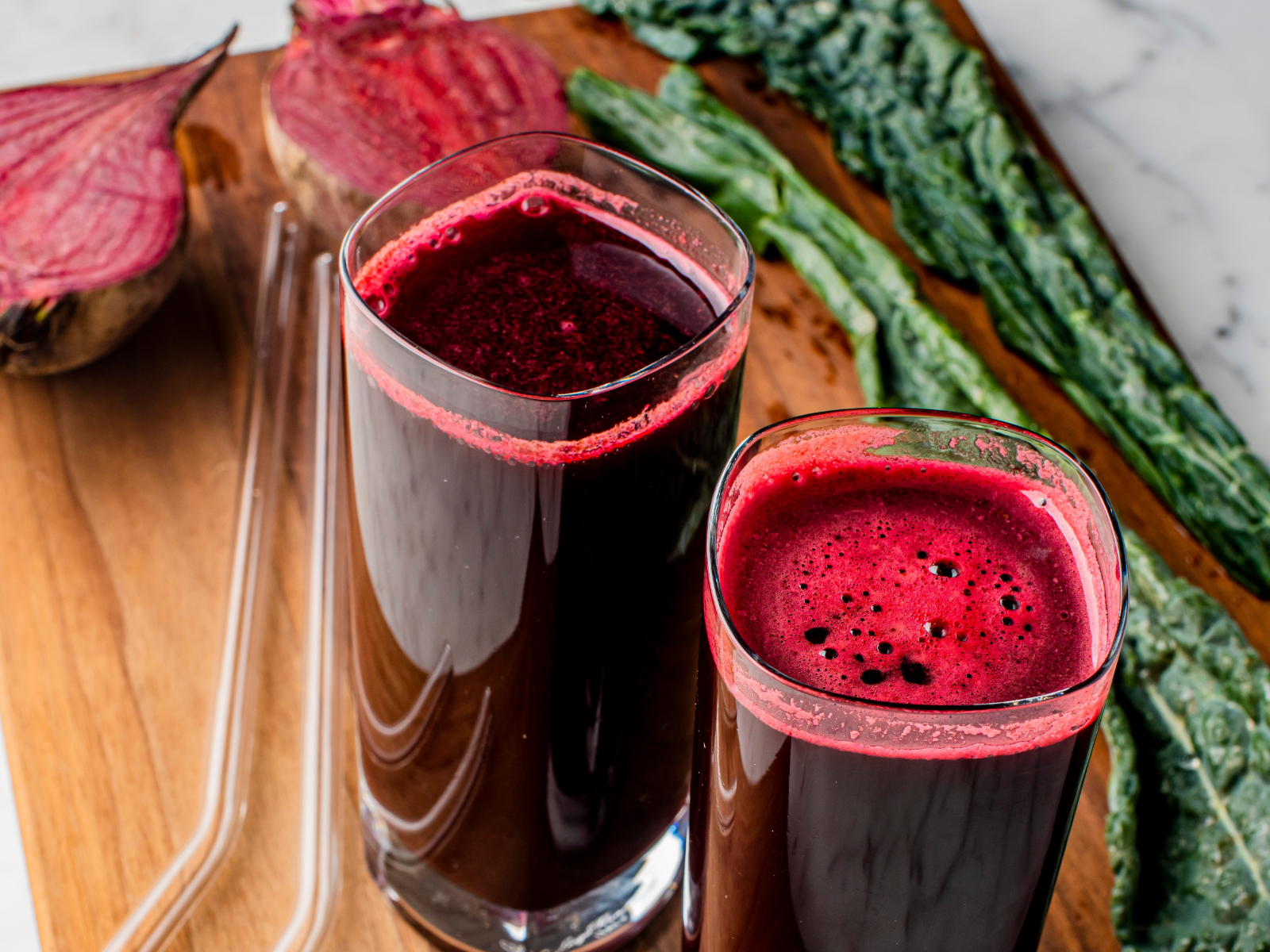Chronic inflammation, when the body continues to send out inflammatory cells even when it doesn’t need to, can wreak havoc on your health. It’s been linked to heart disease, cancer, and diabetes and may even play a role in Alzheimer’s. Thankfully, there are certain foods you can eat that can help decrease the inflammation in your body. An easy way to get more of these healthy fruits, veggies, spices, and more into your diet is by whipping up a simple smoothie packed with them.
If you’re a fan of smoothies, you already know just how easy and convenient they are. All you have to do is toss a few fruits and veggies (and whatever else you’d like) into your blender, hit the start button, and “voila!” a tasty meal or snack in a matter of minutes. Whether enjoyed during breakfast or used as pre-workout fuel, a smoothie can get the job done. Besides being delicious, smoothies are also typically pretty healthy — especially if you add the right ingredients — and can come with many benefits.
For those looking to whip up their very own smoothie at home with wholesome ingredients that can combat inflammation, you’re in luck. We’ve tapped experts to learn more about the best anti-inflammatory smoothie ingredients you can pick up today.
Related: Sign up to receive delicious recipes, expert advice, and shopping tips in your inbox!
1. Turmeric
Turmeric, known for its bright golden color, contains curcumin, which has potent anti-inflammatory properties.
“It has been studied for its potential to reduce inflammation in conditions like arthritis, heart disease, and cancer,” explains Sam Schleiger, MS, RDN, CD.
Because of this, adding a teaspoon of turmeric powder, or fresh turmeric root, to your smoothie gives it a healthy boost.
2. Ginger
“Ginger has long been used for its anti-inflammatory and digestive benefits,” shares Schleiger.
Schleiger points out that ginger contains gingerols, which have been shown to have both anti-inflammatory and antioxidant effects on the body.
“Adding a small piece of fresh ginger or a teaspoon of ginger powder to your smoothie can provide a spicy and tangy flavor along with its anti-inflammatory properties,” she mentions.
If you find ginger root too strong, balance out its bold flavor by adding a bit of honey or lemon.
3. Pineapple
If you’re a fan of putting pineapple into your smoothies, you’re in luck. This popular fruit contains bromelain, an enzyme that has anti-inflammatory properties.
“Bromelain has been shown to reduce inflammation, especially in conditions like osteoarthritis,” says Schleiger.
Beyond smoothies, pineapple tastes excellent chopped up in summery salsas, added to rice dishes, and grilled on the barbecue during backyard get-togethers.
4. Flax seeds
Flax seeds can add a bit of nutty flavor and texture to your smoothies. Not to mention, they also are packed with nutrients and inflammation-fighting properties making it a great anti-inflammatory smoothie ingredient.
“Flax seeds are a great source of omega-3 fatty acids, specifically alpha-linolenic acid (ALA), which has anti-inflammatory effects,” Schleiger says. “They also contain fiber and lignans, which have antioxidant properties.”
According to some experts, ground flax seeds are better than whole flax seeds as they may be easier to digest. Keep this in mind if you’re planning to add these to your smoothies or dishes.
5. Green tea
Green tea is excellent on its own and makes for a healthy smoothie base.
“Green tea contains catechins, a type of flavonoid with antioxidant and anti-inflammatory properties,” Schleiger explains. “Studies have shown that green tea consumption is associated with a reduced risk of chronic inflammatory conditions.”
The next time you whip up your own smoothie at home, switch out milk or yogurt for this alternative.
6. Tart cherry juice
Jamie Nadeau, RDN, points out that tart cherry juice has anti-inflammatory properties and is very easy to incorporate into smoothies, especially as a base.
“Tart cherry juice has anti-inflammatory properties that may reduce blood pressure and LDL cholesterol,” Nadeau says. Nadeau also points out that research has shown that tart cherry juice may help reduce pain and inflammation from osteoarthritis due to its high antioxidant content.
Tart cherry juice especially pairs well with lemon, lime, and other citrus fruits.
7. Kale, spinach, and any leafy greens
Leafy greens, such as kale and spinach, give smoothies an earthy green color and are high in antioxidants like beta-carotene.
“Beta-carotene has been linked with lower levels of an inflammatory marker called C-reactive protein,” says Nadeau.
If you’re interested in adding more greens to your smoothies but are tired of your produce spoiling before you can use it, pick up a few bags of frozen kale or spinach from your local freezer section.
8. Berries
Berries are popular smoothie ingredients for a reason. They’re tasty, add a touch of sweetness, and are also packed with anti-inflammatory compounds, says Nadeau.
“Berries are high in antioxidants, specifically anthocyanins, that have major anti-inflammatory benefits,” Nadeau mentions. “Antioxidants like anthocyanins can help lower your risk for chronic diseases like certain cancers and heart disease.”
The next time you go grocery shopping, pick up blueberries, blackberries, strawberries, and raspberries to add to your morning smoothie routine.
9. Beets
You may often see beets in savory dishes, like salads and soups, but they work well in smoothies, too. For starters, they are a great source of betalains.
“Betalains are potent anti-inflammatory compounds that can help reduce oxidative stress in the body,” shares Amy Fox, CN. Beets are also packed with nutrients, including iron, folate, and magnesium.
Whether you shred them into smoothies or decide to use their juice, beets can give your smoothie that extra healthful edge and a pretty pink shade.
Read next: 7 Healthy Smoothie Recipes Perfect For Busy Mornings
The post 9 Best Anti-Inflammatory Smoothie Ingredients, Say Experts appeared first on Clean Plates.


